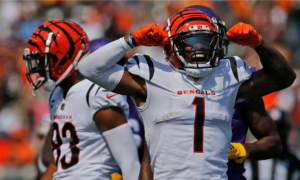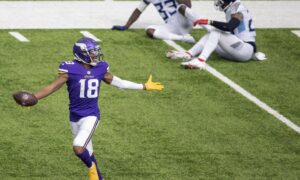This is another article focused on betting ideology/methodology. I highly suggest you check out my “What is a Contrarian?” article either before or after reading this.
Just like any skill, there is a right way and a wrong way to wager on sports. One of the most important aspects of wagering is managing a bankroll and choosing a unit size. This concept is often seen in poker, where there are incredibly skilled players who are not as successful as others because they lack fundamental money management techniques.
Your bankroll represents the amount of money you are committing to wagering in a given period of time. This is an important number to keep track of. Even if you have great percentages, your bankroll should represent money that you can afford to lose. A “unit” is a fixed amount that you bet with that represents between 1-5% of your bankroll.
Ex. If you are willing to commit $100 towards betting, you have a $100 bankroll and you shouldn’t be betting more than $5 per pick.
Your bankroll should be more fluid in times of losing than in times of winning. When you are winning, it is important to stay grounded and consistent. Do not overextend yourself. When you are losing, it’s even more important to take a step back. Make adjustments to your strategy and your bankroll to get you back on track. Maybe listen to The Noise Podcast for some help…
For beginners, I recommend “flat-betting”, especially if you do not have a way to qualify your wagers. This means that you have yet to establish a system where you can determine when one pick is more valuable than another and should constitute higher units. Flat-betting forces you to place one unit on all picks. When flat-betting, you should continue to limit your picks. Do not overextend your bankroll and do not put yourself in a position where one bad day could ruin your bankroll. Be smart. If done properly sports betting is an investment.
One of the best pieces of advice for new sports bettors is to avoid parlays. The books always clean house on parlays. A single parlay win would score a high ROI, yet it is a largely unsuccessful strategy in general. When wagering, you are always looking to be on the side of the sportsbook’s liability. Parlays are the biggest source of revenue for sportsbooks, percentage wise. You are far more likely to turn a profit if you wager on each leg of the parlay, individually. Sportsbooks invite players to take on the unnecessary added risk with open arms. That being said, if you parlay for fun, try to limit them to half or a quarter of a unit.







